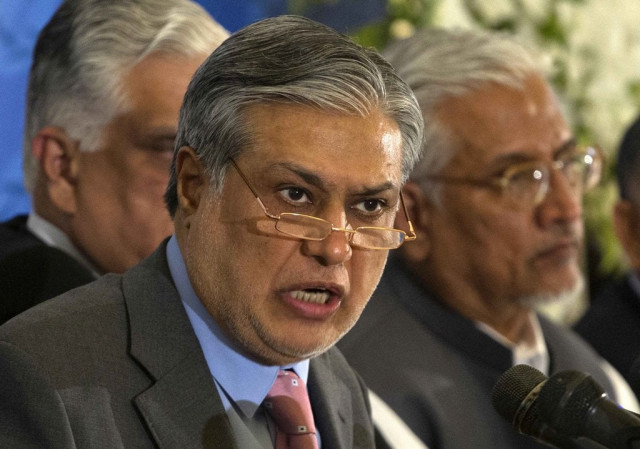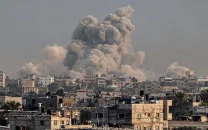Dar to undertake landmark trip to Dhaka
This is going to be the first visit by any Pakistani foreign minister since 2012

Foreign Minister Ishaq Dar will travel to Bangladesh next month in a groundbreaking development that shows warming ties between the two countries after the ouster of the pro-Indian government in August last year.
This is going to be the first visit by any Pakistani foreign minister since 2012. Dar told a news conference on Thursday that he would be visiting Dhaka in February at the invitation of his Bangladeshi counterpart.
Dar was giving an overview of the major foreign policy events and achievements of the government and future challenges.
The foreign minister also confirmed that Bangladesh Chief Executive Dr Muhammad Yunus also accepted Pakistan's invitation to travel to Islamabad at mutually agreed dates.
Hina Rabbani Khar was the last foreign minister who travelled to Dhaka to extend an invitation to Prime Minister Sheikh Hasina Wajid for the D-8 summit.
Relations between Pakistan and Bangladesh remained strained during the 15-year term of Sheikh Hasina. The Awami League leader never reciprocated several attempts by Pakistan to mend ties as she was aligned with India.
However, after her ouster in August last year following the bloody uprising, relationship between Pakistan and Bangladesh has seen a considerable improvement. There have been a number of exchanges between the two countries at the highest level.
Bangladesh has also lifted restrictions on Pakistani exports, allowing increase in the bilateral trade. Moreover, the two countries started direct trade through the sea.
Dar termed Bangladesh as "brother country" saying Pakistan would extend all possible help to Dhaka.
On the issue of resurgence of terrorism, Dar criticized the policy of the PTI government and the previous establishment.
He particularly took a jibe at former DG ISI Lt General (retd) Faiz Hameed for his infamous comment over a cup of tea in Kabul, days after the Afghan Taliban retook power.
He said that critical decisions made "over a cup of tea" led to the entry of 35,000 to 40,000 Tehreek-e-Taliban Pakistan (TTP) members into Pakistan.
He questioned how 40,000 to 45,000 members of the TTP were allowed to enter Pakistan and who facilitated their return.
"Who opened the borders and freed TTP members over a cup of tea?" he asked, pointing to the impact of such policies on the nation's security.
Dar also asserted that Pakistan's diplomatic isolation has ended, crediting the government's active engagement at bilateral and multilateral levels.
"Nobody can now say that Pakistan is isolated," Dar told reporters in Islamabad, emphasizing the country's efforts in expanding its diplomatic footprint.
Meanwhile, Dar portrayed a rosy picture of the coalition government led by Prime Minister Shehbaz Sharif. He insisted that Pakistan was no longer facing an international isolation, listing several developments including holding of SCO conference and a number of high-level visits.
Later, responding to a question about a Washington Post story on Indian involvement in killing foreign nationals, Foreign Office spokesperson Mumtaz Zahra Baloch said Pakistan had already expressed concerns about the Indian involvement in extraterritorial killings, not only in Pakistan but also in other countries.
She said Pakistan desired good ties with Afghanistan but at the same time, Pakistan's people and the security forces were capable enough to thwart any internal and external threat.
To another query, she clarified that Pakistan's ports, including Gwadar Port, were purely meant for trade and development and the country had no design to offer any military bases to any foreign government.


















COMMENTS
Comments are moderated and generally will be posted if they are on-topic and not abusive.
For more information, please see our Comments FAQ